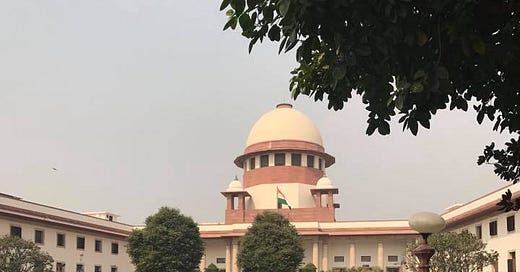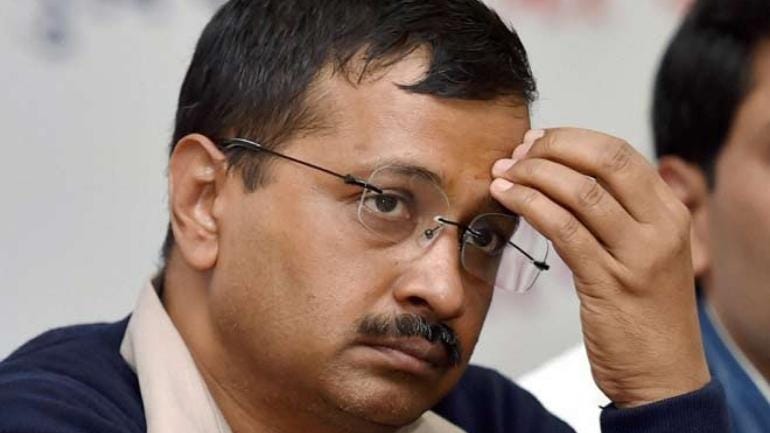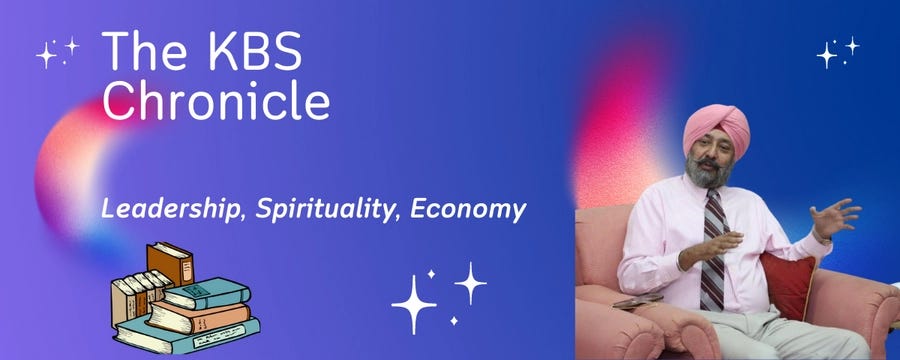Kejriwal in Supreme Court: Theatrics and Threshold of Arrest Thoroughly Threshed
Summary of Proceedings on 29th April, 2024; today's summary after the matter is taken up after lunch.
Allegations of Pre-Election Arrest Timing
During the Supreme Court hearing yesterday, that is on April 29, 2024, the arguments in respect of the arrest of Delhi Chief Minister Arvind Kejriwal stirred significant controversy and debate. Representing Kejriwal, Senior Advocate Dr Abhishek Manu Singhvi raised pointed questions about the timing and necessity of the arrest, suggesting it was strategically aligned with the enforcement of the Model Code of Conduct for the upcoming Lok Sabha elections. Singhvi argued that the Enforcement Directorate (ED) lacked any new incriminating evidence against Kejriwal, thereby questioning the grounds of the arrest made on 21st March 2024, long after the alleged incriminating statement made in July 2023.
We provided a comprehensive background note in our previous article, which will assist in understanding the scope of the proceedings. These are not centered on a bail application but rather on a petition challenging the legality of his arrest by the ED.
Questioning the Need for Immediate Arrest
Singhvi contested the basis of Kejriwal’s arrest by illustrating the lack of direct links between him and the alleged scam within the documents presented, including the CBI FIRs and chargesheets, apart from ED’s own ECIR. The assertion was that despite multiple documents and statements, none conclusively tied Kejriwal to the Delhi Liquor Policy scam, casting doubts on the motivations behind his arrest.
Supreme Court's Response
The Bench, comprising Justices Sanjiv Khanna and Dipankar Datta, engaged actively with Singhvi’s submissions, probing the rationale behind not filing a bail application and instead challenging the arrest through a writ petition. The discussion underscored the legal complexities of the Prevention of Money Laundering Act (PMLA), particularly its stringent provisions for bail and arrest.
Scrutinising the Arrest's Timing and Manner
Further scrutiny was directed towards the manner and timing of Kejriwal’s arrest, which occurred shortly after the Delhi High Court’s denial of interim relief. Singhvi criticized this action, emphasizing that it did not correlate with any immediate or new threat that justified such an abrupt arrest, thus hinting at possible political motivations.
ED's Counterarguments and the High Court's Stance
In contrast, the ED, in its detailed reply, has defended its actions by citing sufficient material linking Kejriwal to the alleged misuse of policy and financial discrepancies. The Delhi High Court had earlier supported this stance, suggesting that evidence presented by the ED pointed towards Kejriwal's active involvement— as the National Convenor of the AAP— in the policy formulation and financial irregularities, money trial and money-laundering linked to the Goa elections.
Implications of the Hearing and Future Prospects
As the Supreme Court adjourned the matter for further hearing today, that is 30th April, the political and legal ramifications continue to unfold. Kejriwal’s arrest has not only sparked legal debates but also raised questions about the use of enforcement agencies in political strategizing. The forthcoming decisions in this high-profile case will likely have significant implications for political and legal narratives in India.
The case is set to continue attracting attention as it develops, highlighting the ongoing tension between governance, law enforcement, and political strategy. As further arguments on behalf of Kejriwal and subsequently by the ED unfold in the Supreme Court today, 30th April, after lunch, we commit to keeping our readers informed with minimal delay.






